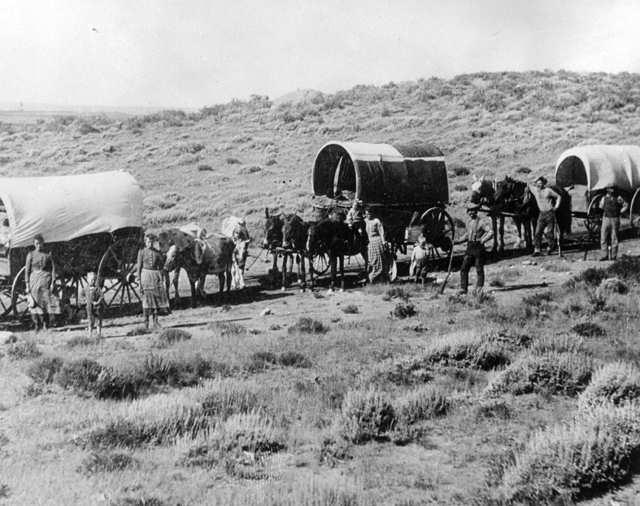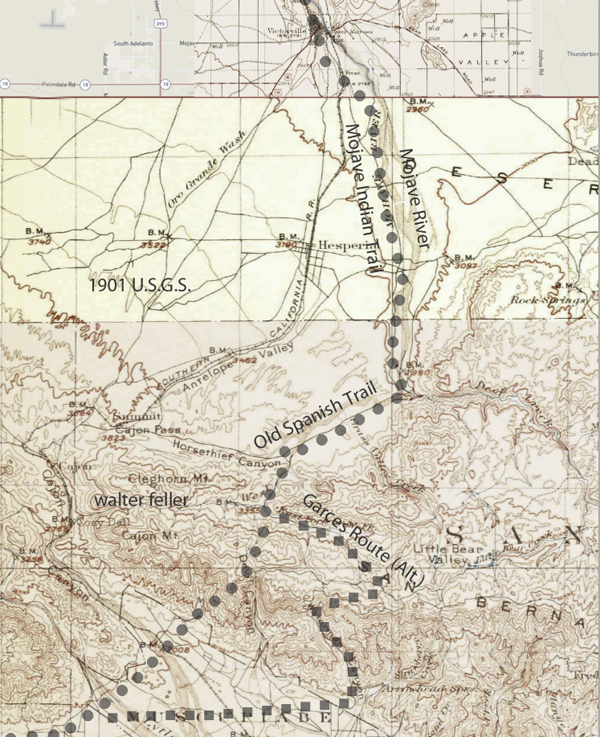
During this phase of the journey the wagon train was doing much of its traveling at night, owing to the great daytime heat of the desert and the long distances between water holes. At regular intervals during the night they would stop for a short rest. At one of these rest stops, eleven-year-old Ellen Baley, a daughter of Gillum and Permelia Baley, fell asleep and failed to awaken when the wagon train moved on. Somehow, she was not missed until the train traveled some distance. The poor girl awoke to find herself alone in the middle of a vast hostile desert. Filled with fright, she began running to catch up with the wagon train, but in her confusion, she took off in the opposite direction. When she was discovered missing, her father and older brother, George, immediately rode back to where they had stopped. To their horror, she was not there! Captured by the Indians must have been their conclusion! Nevertheless, they continued their search by calling out the little girl’s name at the top of their voices as they rode back. Their efforts were soon rewarded when, far off in the distance, came a faint cry,
“Papa, Papa.” Her father immediately answered and kept calling her name until he caught up with her. When reunited with her family and the other members of the wagon train, Ellen had a tale that would be told and retold by family members until the present day.
from:
Disaster at the Colorado
Beale’s Wagon Road and the First Emigrant Party
Charles W. Baley
